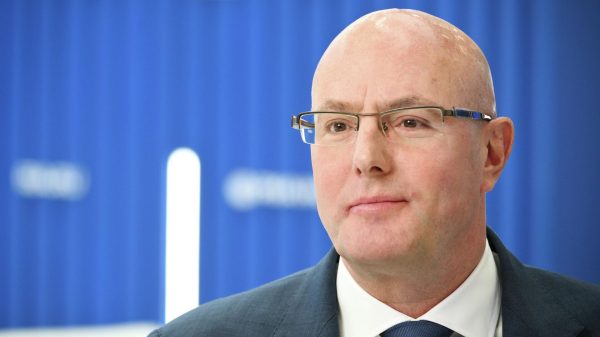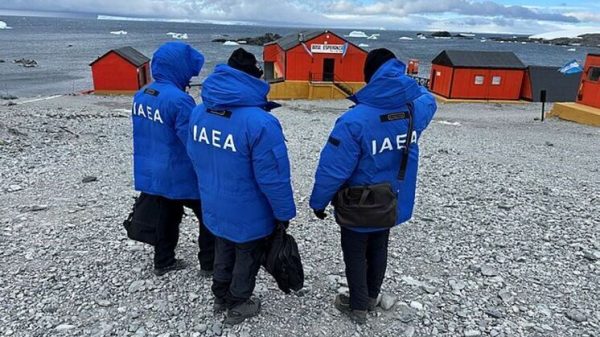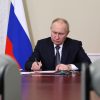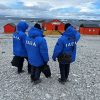Russia’s Sputnik V vaccine appears to be gaining acceptance in the European Union, as the head of Germany’s regulatory authority publicly praised the Covid-19 jab and Italy could become the first European country to produce the vaccine from the summer.
Thomas Mertens, the head of Germany’s standing commission on vaccination, described Sputnik V in an interview on Wednesday as “a good vaccine that will presumably also be approved in the EU at some point”.
“Russian scientists are very experienced in vaccines,” Mertens told Rheinische Post. “Sputnik V is a very clever construct.”
Russia drew criticism last summer when it approved Sputnik V for widespread use after less than two months of human testing, amid fears that the Kremlin was hoping to leverage the vaccine as a soft-power tool.
Quick guide Vaccines: how effective is each one and how many has the UK ordered?
Show
Hide
Pfizer/BioNTech
Country US/Germany
Efficacy 95% a week after the second shot. Pfizer says it is only 52% after the first dose but the UK’s Joint Committee on Vaccination and Immunisation (JCVI) says this may rise to 90% after 21 days.
The UK has ordered 40m doses.
Doses Clinical trials involved two doses 21 days apart. The UK is stretching this to 12 weeks.
Oxford/AstraZeneca
Country UK
Efficacy 70.4% 14 days after receiving the second dose. May have up to 90% efficacy when given as a half dose followed by a full dose. No severe disease or hospitalisations in anyone who received the vaccine. There have been concerns it is less effective against the South African variant of the coronavirus.
The UK has ordered 100m doses.
Doses Two, four to 12 weeks apart
Moderna
Country US
Efficacy Phase 3 trial results suggest 94.1%.
The UK has ordered 17m doses, to be delivered in March or April
Doses Two, 28 days apart
Novavax
Country US
Efficacy Phase 3 trials suggest 89.3%.
60m doses ordered by the UK, with distribution expected principally in the second half of the year
Doses Two
Janssen (part of Johnson & Johnson)
Country US
Efficacy 72% in preventing mild to moderate cases in US trials but 66% efficacy observed in international trials. 85% efficacy against severe illness, and 100% protection against hospitalisation and death.
30m doses ordered by the UK
Doses: One, making it unique among Covid vaccines with phase 3 results so far
Photograph: Stéphane Mahé/X02520
Was this helpful?
Thank you for your feedback.
With its global image tainted by pictures of protests against the arrest of dissident Alexei Navalny, Russia has aggressively marketed its vaccine to non-western countries.
But late-stage trial results published in the Lancet in February this year deemed the vaccine to be safe and offers about 92% protection against Covid-19.
The Russian jab is being assessed by the European Medicines Agency (EMA) but has already been ordered or put to use in some EU countries in eastern Europe.
From July, the Russian vaccine could also be produced inside the European Union, after a deal was struck between Adienne, an Italian-Swiss pharmaceutical company, and the Russian Direct Investment Fund.
Depending on approval from Italian regulators, production could begin at the company’s factory in Caponago, near Milan, in July, with 10m Sputnik doses expected to be produced for export to non-EU countries by the end of the year.
Vincenzo Trani, the president of the Italian-Russian Chamber of Commerce, which helped bring the deal together, hailed the move as “historic” and said it would help create jobs in Italy. He added that the agreement reflected “the healthy state of relations between our two countries and underscores how Italian companies can see beyond political differences”.
The Italian government was reportedly not made aware of the deal, although the ministry of economic development said it was a “legitimate operation”. Attilio Fontana, the president of the Lombardy region, said the agreement was “good news”.
Sputnik will not be made available for use in Italy unless it is given approval by both the EMA and the Italian pharmaceutical authority, Aifa. Leading politicians, as well as several medical experts, have called for Sputnik to be approved for use in the country, where the vaccination programme has been hampered by late deliveries of other jabs.
Roberto Speranza, the health minister, said if Sputnik got approval then it would be used in Italy. “If a vaccine works and if EMA and Aifa say that it’s safe and effective, then nationality doesn’t interest me,” he added.
Italy has also been under pressure to move quickly after San Marino, the microstate landlocked within central Italy, started administering Sputnik to its 35,000 residents in February.
The EMA, which has so far authorised the use of the BioNTech/Pfizer, Moderna and AstraZeneca vaccines, began assessing the Russian vaccine on 4 March.
“EMA will assess Sputnik V’s compliance with the usual EU standards for effectiveness, safety and quality. While EMA cannot predict the overall timelines, it should take less time than normal to evaluate an eventual application,” the regulator said in a statement.
Some eastern European countries have already broken rank with the rest of the EU by ordering doses of the Russian jab, whose name evokes the world’s first satellite to be launched into orbit. Hungary administered the first Sputnik V shot on 13 February and Slovakia has ordered 2m doses in a secret deal orchestrated by the country’s prime minister, Igor Matovič.
The Czech Republic, which recorded the world’s highest Covid-19 infection rate this month, has said it is also considering ordering Sputnik V before it has been authorised by the EMA.
The EU is reportedly also planning to include Sputnik V and Chinese jabs in the vaccine passport that would ease travel restrictions for those who have been immunised against the virus, plans of which are to be unveiled next week.
The “EU Covid card” is expected to comprise of three digital and paper documents showing whether the holder has been injected with not just the EMA-approved vaccines but also Russian and Chinese ones, according to a report by Bloomberg.
Meanwhile, the Spanish government denied knowledge of any contract to domestically manufacture the Sputnik vaccine, after Moscow’s RDIF sovereign wealth fund said it had struck deals in Spain, France and Germany. “At the moment we are not aware that any contract has been formalised for manufacturing in Spain,” the Health Ministry said in a statement.






















































Свежие комментарии